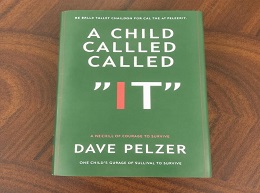The Year of Magical Thinking

A Comprehensive Review of Joan Didion's "The Year of Magical Thinking"
Joan Didion's memoir, "The Year of Magical Thinking," published in 2005, is a profound exploration of grief, memory, and resilience. Written in the wake of her husband John Gregory Dunne's sudden death and during the critical illness of their only daughter, Quintana, Didion's narrative is both deeply personal and universally resonant. The book won the National Book Award for Nonfiction and was a finalist for the Pulitzer Prize. This review delves into the various elements that make "The Year of Magical Thinking" a compelling and poignant read, highlighting its emotional depth, literary craftsmanship, and the profound insights it offers into the human experience of loss.
The Shock of Sudden Loss
The memoir opens with the sudden and unexpected death of Didion's husband, John Gregory Dunne, on December 30, 2003. Didion vividly describes the ordinary evening that turned tragic when Dunne collapsed from a heart attack. This event, marking the beginning of her "year of magical thinking," serves as the central axis around which the narrative revolves.
Didion's portrayal of her initial shock and disbelief is strikingly raw and honest. She recounts how she struggled to process the reality of her husband's death, often finding herself caught in a web of magical thinking—a psychological state where she irrationally hoped to reverse or undo the event. She writes, “Life changes fast. Life changes in the instant. You sit down to dinner and life as you know it ends.” This opening line encapsulates the abruptness and permanence of loss, setting the tone for the rest of the memoir.
The Process of Grieving
One of the most compelling aspects of Didion's memoir is her exploration of the grieving process. She delves into the myriad ways grief manifests, from the physical sensations of shock to the emotional turbulence that follows. Didion's narrative is not linear; instead, it mirrors the disorienting and cyclical nature of grief.
Throughout the memoir, Didion grapples with her inability to accept Dunne's death. She meticulously details her thought processes, including her irrational belief that he might return. This is exemplified by her reluctance to give away his shoes, reasoning that he would need them if he came back. Such moments of magical thinking highlight the human tendency to seek control and understanding in the face of incomprehensible loss.
Quintana's Illness
Parallel to her husband's death, Didion's daughter Quintana was battling a severe illness. Quintana's hospitalizations and critical condition added another layer of complexity to Didion's grief. The memoir captures the duality of Didion's experience—mourning her husband while desperately trying to hold onto her daughter.
Didion's account of Quintana's illness is filled with medical jargon and detailed descriptions of hospital procedures, reflecting her need to understand and gain some semblance of control over the situation. The juxtaposition of her husband's death and her daughter's illness underscores the relentless nature of her grief and the intensity of her emotional turmoil.
Memory and Reflection
Memory plays a crucial role in "The Year of Magical Thinking." Didion frequently revisits past events, conversations, and experiences shared with Dunne. These memories are not merely nostalgic reflections but are integral to her process of making sense of her loss. She examines their life together, their routines, and the subtle dynamics of their relationship.
Didion's reflections are often interspersed with literary and cultural references, drawing connections between her personal experiences and broader human themes. For example, she references works by authors such as W.H. Auden and Emily Post, using their insights to frame her own understanding of grief. This intertextuality enriches the memoir, adding depth and universality to her personal narrative.
The Role of Writing
Writing itself becomes a therapeutic tool for Didion. The act of putting her thoughts and emotions into words helps her navigate the chaos of her grief. She writes with a clinical precision, dissecting her emotions and experiences with a journalist's eye for detail. This analytical approach provides a counterbalance to the overwhelming emotional weight of her subject matter.
Didion's background as a writer and journalist is evident in her meticulous attention to detail and her ability to articulate complex emotions with clarity. Her narrative voice is both detached and deeply intimate, creating a powerful and compelling reading experience. She writes, “We tell ourselves stories in order to live,” underscoring the importance of narrative in making sense of our lives and losses.
Coping and Resilience
Despite the pervasive sense of loss, "The Year of Magical Thinking" is also a testament to resilience. Didion's journey through grief is marked by moments of strength and clarity. She confronts her pain head-on, acknowledging its presence while gradually finding ways to move forward.
One of the most poignant aspects of the memoir is Didion's recognition of the need to continue living. She describes how, even in her darkest moments, she found solace in small routines and connections with others. Her ability to find moments of beauty and meaning amidst her grief is a testament to the resilience of the human spirit.
Literary Style and Structure
"The Year of Magical Thinking" is characterized by Didion's distinctive literary style. Her prose is clear, concise, and evocative, capturing the rawness of her emotions without descending into melodrama. The memoir's structure, with its non-linear timeline and interweaving of past and present, mirrors the disorientation and fragmentation that often accompany grief.
Didion's use of repetition, particularly of key phrases and ideas, reinforces the cyclical nature of her thought processes. This technique creates a sense of rhythm and continuity, drawing readers into the ebb and flow of her emotional journey. Her precise and deliberate language serves to both anchor and elevate the narrative, making the memoir a deeply moving and intellectually engaging read.
Critical Reception and Impact
Upon its release, "The Year of Magical Thinking" received widespread acclaim for its candid and unflinching portrayal of grief. Critics praised Didion's ability to articulate the complexities of mourning with both clarity and depth. The memoir's impact extended beyond the literary world, resonating with readers who had experienced similar losses.
The book's success led to a stage adaptation, further testament to its powerful and enduring impact. Didion's memoir has since become a seminal work on grief, offering solace and understanding to countless readers. Its exploration of universal themes such as love, loss, and resilience ensures its continued relevance and significance.
"The Year of Magical Thinking" by Joan Didion is a profound and deeply affecting memoir that offers a compelling exploration of grief and resilience. Through her candid and eloquent narrative, Didion provides readers with an intimate look into her personal journey through unimaginable loss. The memoir's blend of personal reflection, literary references, and meticulous detail creates a rich and multifaceted reading experience.
For those seeking to understand the complexities of grief or simply looking for a deeply moving and beautifully written memoir, "The Year of Magical Thinking" is an essential read. Joan Didion's ability to capture the rawness of her emotions and her journey towards acceptance and resilience makes this memoir a timeless and powerful work of literature.












